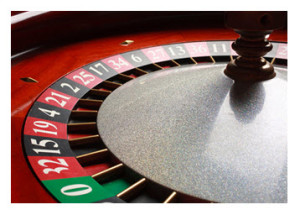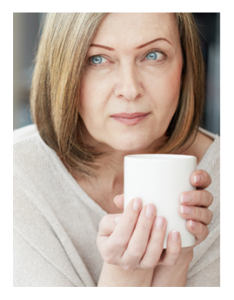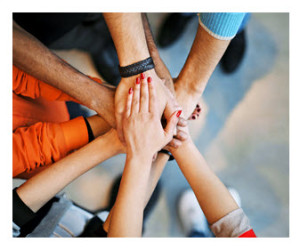In a Times opinion piece addressing the lack of progress for women in the entertainment industry, two lines strike me as hitting their mark with laser focus. These words would have served me well in more than one conversation over the years, and their broad applicability encourages me to share them.
 In “No Golden Age for Women on TV,” television producer and author Nell Scovell writes:
In “No Golden Age for Women on TV,” television producer and author Nell Scovell writes:
… Comedies created by women came into vogue in the late 1980s, exploded in the early 90s, went mainstream in the mid-90s and were shoved into the back of the closet around 1997. It took another decade before the next show solely created by a woman — Tina Fey’s “30 Rock” — made it back into the elite Emmy inner circle.
Ms. Scovell cites disappointing data on women’s employment in the entertainment business, including female writers, producers and directors. She situates these current statistics in what she describes as a “spike” (rather than a trend) that occurred some 25 years ago. And she adds that when she discusses Hollywood’s gender imbalance, the response she gets is one name — Tina Fey. Another that comes to mind is Scandal’s Shonda Rhimes.
What follows is the observation that I would like to share:
There have always been women who were successful against the odds. Now we need to change the odds so more women can be successful.
Oh, the number of times I could have used these words, and used them again replacing “women” with ‘the poor’, ‘the elderly’ or for that matter, ‘single mothers of little means’, this last, something I know much about despite appearances to the contrary. On a related note, when I found myself desperate for paying work some twelve years ago and eleven years ago and ten years ago — you get the picture — my situation in the aftermath of an unwanted divorce and a layoff, I was willing to work anything and everything I could, while raising my children. Repeatedly told I was over-educated and overqualified, our little family survived on every gig I could drum up, and a mountain of debt.
During those years as well as since, I’ve lost count of the number of times I’ve been told: “Write a book and you’ll be fine. JK Rowling did it. Why can’t you?”
To quote Ms. Scovell again: There will always be women who are successful against the odds; we need to change the odds so more women can be successful.
My children are launched now, though one is in his last year of college. I am and will be here for him in every way that he needs me. And no, that doesn’t mean financially, beyond a narrowly defined commitment; it does mean maintaining a small household that the three of us can consider “home” — for as long as I can manage to keep it. I will add that I view my sons as my greatest gift and my greatest “success,” though naturally, there are incidents that I wish I had handled differently.
 Like most of us, I have my challenges in daily life, and I also have my share of opportunities. I accept the former, and am appreciative of the latter, some of which are opportunities I create, others may come by way of seeds I planted years ago, and still others drift into my path with no apparent thread, as they would with any of us.
Like most of us, I have my challenges in daily life, and I also have my share of opportunities. I accept the former, and am appreciative of the latter, some of which are opportunities I create, others may come by way of seeds I planted years ago, and still others drift into my path with no apparent thread, as they would with any of us.
As I re-read Ms. Scovell’s two sentences, I think of a recent remark on something I wrote, which was rife with assumptions, judgment and cliché. Replace the JK Rowling reference with Queen Latifa. Beyond noticing that the commenter missed several underlying conclusions, I chose not to respond in part because I was grasping for words and they would not come. I know now those two sentences above are precisely the reply I would like to have given.
I am not a woman of color and therefore, throughout my life, I have benefited from easy entrée into circles that would have been closed to me otherwise. I have also been part of the working poor, though I rarely admit it; to say as much is simply “not done,” especially by those with my educational background. I bring this up merely to point out that I am familiar with some — note I say some — of the sacrifices, consequences, and humiliations which that entails. Yet again, I will state plainly that any hardships I have lived are nothing compared to those who are born into, raised in, or fall irretrievably into the pit of poverty. Moreover, I had tools (and possibly angels) that enabled me to find the means, however tenuous, to hang on through seven frightening years.
I intend no direct comparisons between my life — begun in a modest household of educated parents — to any person raised in hardship, or for that matter, a person of color who has had to fight battles I will never face. Likewise, I make no comparison to anyone who is growing up with physical or mental health challenges that close so many doors and options that most of us take for granted. If anything, the older I get, the more I realize the inherent advantages I was born with or taught (a good mind, a healthy body, a strong work ethic) — not to mention the advantages of growing up in a region with excellent public schools. All of this provided me resourcefulness among other skills, and their value is not to be underestimated.
But nor should we underestimate those odds that Ms. Scovell calls to our attention.
And here, my stories are irrelevant. We have many more serious and far-reaching examples of increasing inequality: yes, the millions struggling in poverty or working at less than a living wage; those who wish to work and find nothing, at both ends of the age spectrum; those who fall off the radar as their attempts to pick themselves up and go on meet dead-end after dead-end; the racial prejudice that still raises its venal head in too many pockets of this country…
No doubt you could substitute any number of “groups” for the word “women” in Ms. Scovel’s quote above. And as I ponder how to move from recognizing the legitimacy of her point in all its applicability, I ask myself how to move beyond the understanding of what she is saying — the need to change the odds — to making a difference.
The only answer it seems to me: action. At the very least, opening our eyes to those in our immediate circles who need a helping hand or a simple kindness; at best, expecting more of ourselves than the occasional exercise of our right to vote. And in those expanded expectations, how about creating, contributing to and sustaining foundational social change any way we can — with our hands, our hearts, our words and our wallets?
 In small ways or large, in all the diversity of actions and influence available to us, most of us can do something to effect change in the service of others, which ultimately is in the greater good for our families and our communities, as well as ourselves.
In small ways or large, in all the diversity of actions and influence available to us, most of us can do something to effect change in the service of others, which ultimately is in the greater good for our families and our communities, as well as ourselves.
This leads me to reference another article in The Times, Mark Bittman’s farewell column after five years as our conscience on issues of food — political, environmental, and economic, among others.
Mr. Bittman leaves The Times to join a “start-up food company,” seeking to transition from journalistic activism into something more hands-on.
Two other columns dealing with educational issues (and systemic bias) offer additional context where opportunity is plentiful when it comes to changing the odds. I found this one, by Anthony Abraham Jack, of particular interest, addressing what the privileged poor can teach us about successful transitions to higher educational environments.
It is easy to revere the exception and the exceptional; the examples can be powerful motivational tools — inspirational, even — but they are little more than obfuscation when deployed as an answer intended to shut down further debate. As Ms. Scovell points out, the discussion ought to deal with leveling the playing field, or as she puts it, changing the odds. And hats off to those who fight the good fight, trying to accomplish exactly that.
You May Also Enjoy
Leave a Reply